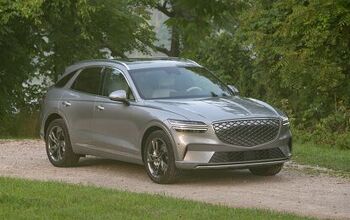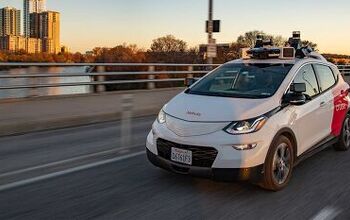As the Marketplace Shifts, Toyota Has a Truck Problem

Cars. They still make ’em, don’t they?
Automakers do, in fact, still produce cars, but they’re the last thing those companies’ bosses want to talk about, and they’re no longer on the top of most buyers’ shopping lists.
For the world’s largest automaker, the U.S. public’s shift towards trucks, SUVs and crossovers presents a problem. Toyota has them, but can’t build enough of them. With the rapidly declining interest in cars threatening its tentative No. 1 standing, Toyota needs to find a way to give buyers what they want.
Speaking to Automotive News, Didier Leroy, Toyota’s executive vice president and chief competitive officer, bluntly stated what his company needs to stay on top. Give dealers “more and more and more trucks,” Leroy said.
“Our commitment for the U.S. dealers is we will provide them more and more and more trucks and more SUVs,” Leroy told AN. “We provided them more trucks and SUVs this year than last year, and in 2017, we will even produce and deliver more trucks.”
Barring a significant sales bump in the last three months of 2016, this year could see Toyota’s U.S. sales decline for the first time since the 2011 Japanese tsunami. That disaster threw a wrench into the automaker’s operations, leading to a sales dip. Otherwise, sales have risen steadily since the recession.
However, the market has lost some of its heat. As sales flatten out, automakers have turned to ever-greater incentives to push new vehicles off the lot. Focusing on top-selling vehicles is key, and it’s trucks and SUVs that buyers want.
Through the first nine months of 2016, sales of Toyota cars have dropped 11 percent, and total sales are down 2.4 percent. The company’s truck production hasn’t kept pace with demand. To compensate, Leroy claims Toyota wants trucks to count for 55 percent of its sales, up from today’s 51.9 percent.
There’s only one problem: production is already maxed out, both in the U.S. and in Japan. In the fastest-growing segment — midsize trucks — Toyota’s Tacoma has seen its share erode in the face of competition from General Motors and other players. A $150 million investment in its Tijuana, Mexico Tacoma plant should boost production from 100,000 vehicles annually to 160,000, but those new vehicles won’t come online until 2018. The automaker has already added an extra shift at that facility, as well as its San Antonio, Texas assembly plant.
Leroy wouldn’t say what the automaker plans to do about its truck problem, only saying that it needs to be careful. An added shift here and there could hold Toyota over until capacity expansions arrive, but, Tijuana aside, it hasn’t yet committed to sinking money into new or expanded truck plants.
Toyota remains a cautious company, but that caution could see it lose its sales lead.
[Image: Toyota Canada]

More by Steph Willems
Latest Car Reviews
Read moreLatest Product Reviews
Read moreRecent Comments
- Jalop1991 does the odometer represent itself in an analog fashion? Will the numbers roll slowly and stop wherever, or do they just blink to the next number like any old boring modern car?
- MaintenanceCosts E34 535i may be, for my money, the most desirable BMW ever built. (It's either it or the E34 M5.) Skeptical of these mods but they might be worth undoing.
- Arthur Dailey What a load of cow patties from fat cat politicians, swilling at the trough of their rich backers. Business is all for `free markets` when it benefits them. But are very quick to hold their hands out for government tax credits, tax breaks or government contracts. And business executives are unwilling to limit their power over their workers. Business executives are trained to `divide and conquer` by pitting workers against each other for raises or promotions. As for the fat cat politicians what about legislating a living wage, so workers don't have to worry about holding down multiple jobs or begging for raises? And what about actually criminally charging those who hire people who are not legally illegible to work? Remember that it is business interests who regularly lobby for greater immigration. If you are a good and fair employer, your workers will never feel the need to speak to a union. And if you are not a good employer, then hopefully 'you get the union that you deserve'.
- 28-Cars-Later Finally, something possibly maybe worth buying.
- EBFlex The simple fact is very small and cheap ICE vehicles have a range thats longer than all EVs. That is the bar that needs met. And EVs cannot meet that.Of course range matters. But that's one element of many that make EVs completely ineffective at replacing ICE vehicles.































Comments
Join the conversation
Hey GM, this Tacoma is what a proper 'off road recreational truck' is supposed to look like, right out of the box. Building 'old man' trucks may be profitable but it doesn't give you any cred where it counts.
"Cars. They still make ’em, don’t they?" Still going all-in with this crap, I see.